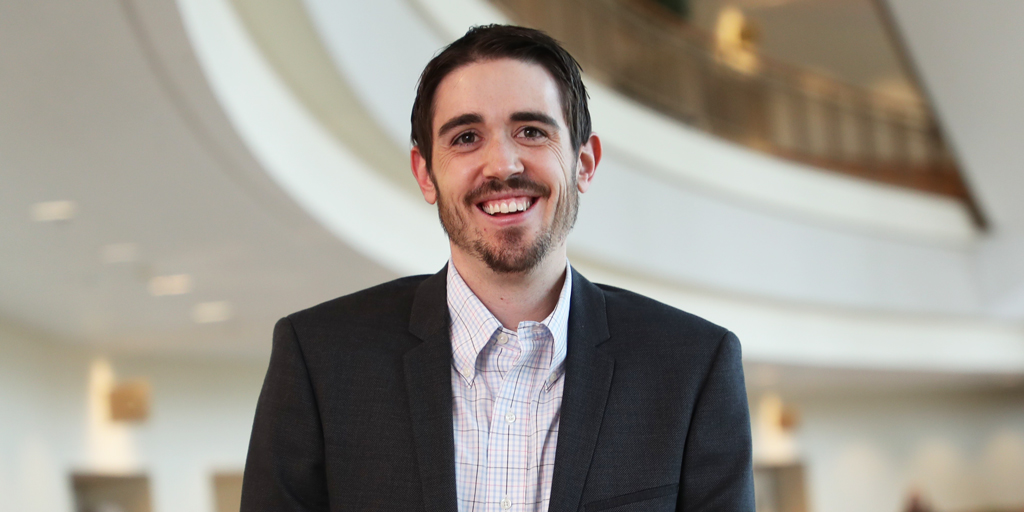Meet Baylor’s nationally recognized expert on how sleep affects memory and cognition

If you’re like most people, you’ve skimped out on sleep before. We tell ourselves it’s not a big deal; sacrifice an hour here, two hours there, maybe even an entire night’s sleep if you’re really pressed. Well, there’s a Baylor professor who studies what happens when we do that — and the news isn’t great.
Dr. Michael Scullin has been studying the link between sleep and memory since he was a graduate student in the late 2000s. An assistant professor of psychology and neuroscience at Baylor since 2015 and the director of the Sleep Neuroscience and Cognition Laboratory, Scullin’s research investigates how sleep impacts memory, education, health and aging. Much of his research is done in his lab, where students participate as both researchers and subjects. He’s further interested in how we use memory to fulfill our daily intentions (called “prospective” memory) as well as how exercise, diet and medication adherence affect cognitive and neural functioning.
Scullin’s findings include that memory is not as sleep-dependent in older adults; that getting good quality sleep while you’re still young promotes better cognitive functioning in old age; that skimping on sleep and following up with sleep marathons hurts attention and creativity in young adults; and that writing a to-do list before sleeping could make you fall asleep an average of nine minutes faster. His research has been cited by such national outlets as Good Morning America, USA Today and the BBC.
Scullin is involved in service committees for the Sleep Research Society and the American Psychological Association, and he co-founded the APA journal Translational Issues in Psychological Science. He’s won dozens of psychology awards, including the 2017 Rising Star Award from the Association for Psychological Science (which, by the way, went to yet another Baylor psychology professor this year).
“The main thrust of our research is to identify how sleep physiology and sleep habits affect memory and cognition across the adult lifespan,” Scullin said upon winning the Rising Star award. “This couldn’t be more important to students who all too often cut back on sleep during the weekdays and try to catch up on the weekends. … My pie-in-the-sky goal is to teach every Baylor University freshman student the importance of maintaining an eight-hour sleep schedule, even during finals week, and to help them maintain this healthy sleep habit across all four years.”
Sic ’em, Dr. Scullin!
You might also like:
* Meet Baylor’s nationally recognized expert on cell phone addiction (April 2018)
* Meet Baylor’s nationally recognized expert on work-life balance (Sept. 2017)
* Baylor prof receives honor for research on psychology of religion (July 2017)

